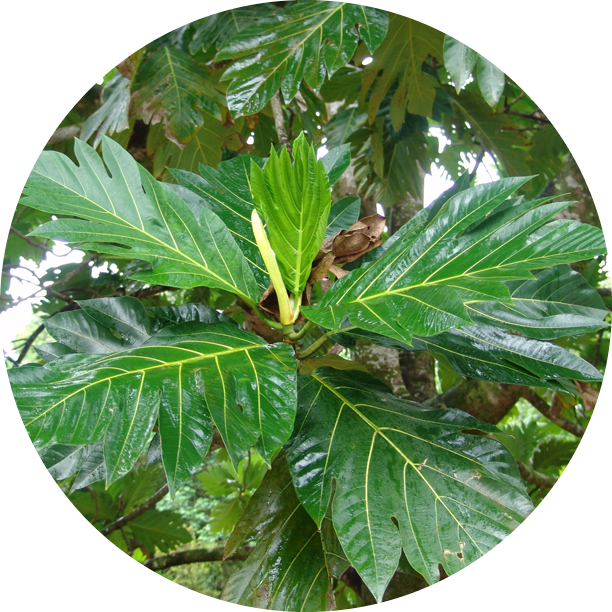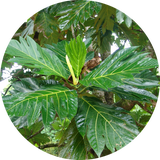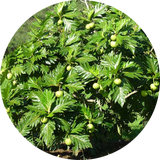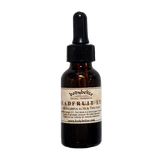- PLANT MEDICINE
- >
- Tinctures
- >
- BREADFRUIT LEAF TINCTURE
BREADFRUIT LEAF TINCTURE
Family: Moraceae
Genus: Artocarpus
Species: altilis
Synonyms: Artocarpus incisus, Breadnut tree
Common Names: Breadfruit tree, Ulu (in Hawaii), Artocarpus, Fruta de pan (in Spanish)
Parts Used: Leaves
Main Actions: Antioxidant, Anti-inflammatory, Antimicrobial
Other Actions: Antidiabetic, Antihypertensive, Anticancer
Description: Breadfruit leaves are large, glossy, and deeply lobed, belonging to the mulberry family. The tree can reach up to 26 meters in height, with leaves typically measuring around 30 centimeters in length.
Tribal and Herbal Medicine Uses: Traditional medicine employs breadfruit leaves for treating various ailments including wounds, skin infections, and diabetes. It's also used for managing hypertension.
Plant Chemicals: Breadfruit leaves contain phenolic compounds, flavonoids, tannins, and saponins.
Biological Activities and Clinical Research: Studies suggest antioxidant and anti-inflammatory properties. Some research indicates potential antidiabetic and anticancer effects.
Current Practical Uses: Breadfruit leaves are utilized in herbal medicine, dietary supplements, and traditional cuisine.
Main Preparation Method: Decoction or infusion of dried or fresh leaves.
Main Actions (in order): Antioxidant, Anti-inflammatory, Antimicrobial
Main Uses: Managing wounds, skin infections, diabetes, and hypertension.
Properties/Actions Documented by Research: Antioxidant, Anti-inflammatory, Antimicrobial, Antidiabetic, Anticancer
Other Properties/Actions Documented by Traditional Use: Wound healing, Hypertension management
Cautions: No significant adverse effects reported, but caution advised for pregnant or breastfeeding women.
Traditional Preparation: Leaves are often boiled to extract medicinal properties or used fresh as poultices.
Contraindications: None reported, but consult healthcare provider if pregnant, breastfeeding, or have pre-existing medical conditions.
Drug Interactions: Limited information available, consult healthcare provider if using medications concurrently.
Recommended dosage: 1ml taken 2-3x daily in a small glass of water or juice on an empty stomach for better absorption.




